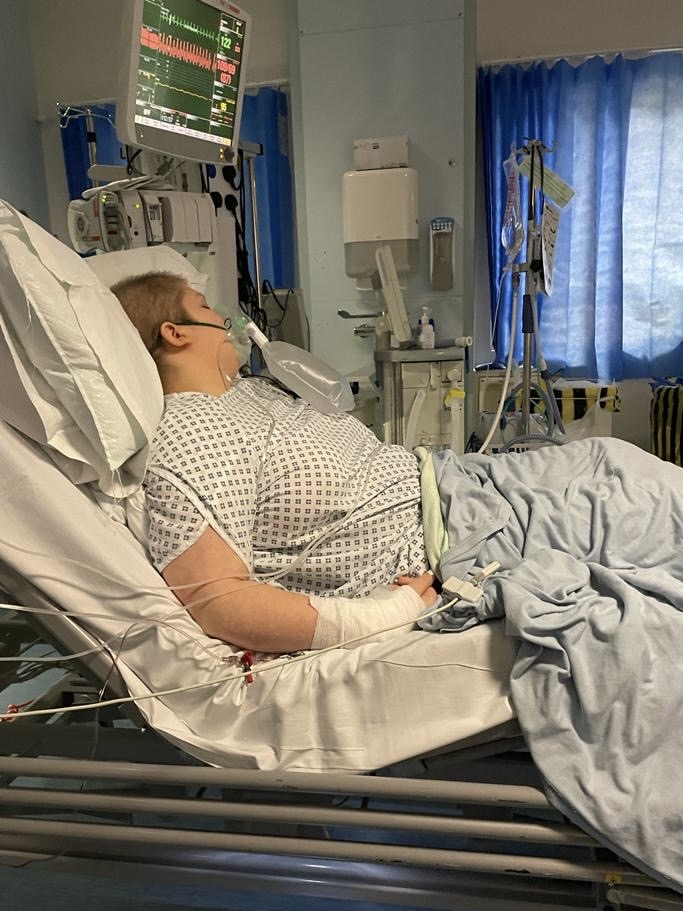What it’s like being diagnosed with cancer at 13
Bobby
Aged only 13, Bobby was diagnosed with acute lymphoblastic leukaemia. In the first of a series of blogs, he describes the signs and symptoms he experienced, settling into the Teenage Cancer Trust unit and his Youth Support Coordinator, Conor.
Before I was diagnosed with cancer, I was a normal 13-year-old. I went to school, I enjoyed playing football and basketball, and hanging out with my friends.
I started feeling unwell and we thought I had an eye infection. I was struggling to sleep as well, and I wasn’t eating for a while as I kept throwing up.
I thought it was just a really bad bug, so when they told me it was cancer, I was so shocked. They explained that I had acute lymphoblastic leukaemia. I hadn’t even heard of that type before, but as soon as I heard the word leukaemia, I thought the absolute worst and wondered if I was going to die.
I was transferred to the Teenage Cancer Trust unit at the Royal Hospital for Children and Young People in Edinburgh. The unit was lovely, especially the snug with game consoles in. There were a couple of other boys who were in there too.
Playing together on the consoles was an icebreaker and naturally helped us start conversations. We’d ask each other about what we’d been diagnosed with, and the conversation flowed naturally. Chatting to other young people with cancer helped me find out about what’s to come and lessened some of my worries.
I also met Conor, my Teenage Cancer Trust Youth Support Coordinator. I was having anxiety about needles because the first time they changed my gripper it took five different needles. That made me worry about getting anything done with a needle again.
Conor helped me a lot with my anxiety. He told me that anxiety would always be there because I’d had a bad experience with the medication and needles, but that if I thought about the worst-case scenario every time then it would make things worse.
He told me to focus on the fact that I could get through it. He taught me to concentrate on something else when having needles and medication so that it would distract me. He gave me breathing techniques to do when he can’t be there, and they calm me down.


